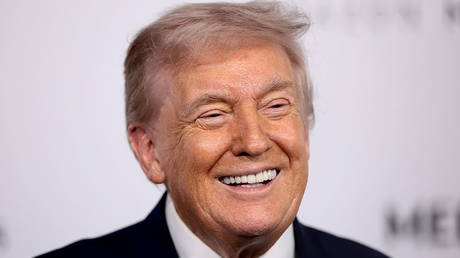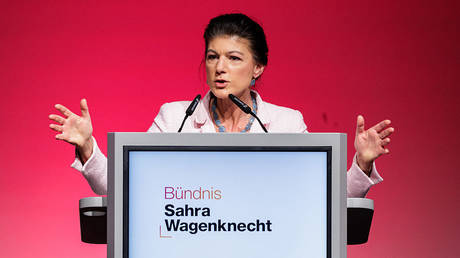
Chinese lung cancer drug slow-walked because test subjects were Asian
The review of an affordable monoclonal antibody drug for treating lung cancer, which had previously been tested in China, has been stalled in the US, a report by the Daily Wire said on Monday. The Food and Drug Administration (FDA) explains the issue by the trials’ lack of diversity, with an official even saying last week that they “want people that look like us on this trial.”
US pharma giant Eli Lilly and its Chinese partner Innovent recently completed clinical trials of sintilimab – a relatively affordable monoclonal antibody drug that could extend the lives of individuals with late-stage non-squamous non-small cell lung cancer. The trial, which took place in China, enrolled Asian participants.
As the drug was set to be reviewed by the US Food and Drug Administration last week, all signs pointed to smooth sailing ahead, according to the Daily Wire, which analyzed the written minutes of the meeting in an article published Monday.
Cancer remains one of the top two causes of death in the US, and the drug’s relative affordability made it even more appealing. But rather than embrace the new drug, Dr. Richard Pazdur, the director of the Food and Drug Administration’s Oncology Center of Excellence, pointed to one insurmountable problem with the study. “Our clinicians, we want people that look like us on this trial, okay,” he said on Thursday, noting that he and his colleagues had just celebrated Black History Month.
Padzur went on to say that he believes the trial “does not reflect the ethnic and racial makeup of a US population notably with regard to groups traditionally underrepresented in clinical trials.”
Notably, 79% of US patients with the type of cancer the drug is meant to treat are white, according to the Daily Wire’s report.
Aside from the lack of diversity of the Asian test subjects, the trial – dubbed Orient-11 – appeared successful on multiple levels. Patients who received the drug along with chemotherapy are said to have reduced disease progression by 52% compared with those who underwent just the chemo, and their risk of death was decreased 35%. Even more unusually for the expectedly high prices in American healthcare, Eli Lilly was touting the affordability of the drug as a selling point.
An Innovent official responded by saying that “There’s no reason to suggest that the safety in the US patients would differ from the results observed in Orient-11.”
Pazdur, however, has reminded the Chinese drugmaker that “the representation of ethnic and racial minority groups is not just a biological reason,” but it’s also meant to “build confidence in the clinical trials and a confidence after these drugs are approved that they should be used in these groups.”
Just three years ago, Pazdur himself was championing the use of Chinese companies to conduct drug trials, noting that they could be done cheaper overseas and thus bring down the prices of often unaffordable new drugs. But over the last “two to three years,” he observed on Thursday, “this country has experienced significant social change and there has been a tremendous outcry for diversity in clinical trial and representation.”
Only one member of the expert panel to whom the FDA presented its concerns last week called out what he viewed as the flaw in Pazdur’s argument, pointing out that “this drug works” and “health equity I think will improve when there are fewer cost barriers to care.” Panelist Dr. Jorge Nieva continued that “having more drugs competing for those same patients will have, I think, greater impact on equity than the need for diversity in clinical trial enrollment.”
While the FDA’s presentation did acknowledge there was no reason to believe the drug would work differently on Chinese subjects than on white American subjects, a statement in the Innovent study had specifically suggested that black patients’ bodies would actually respond to the drug in a manner more similar to their Chinese counterparts than to white patients. However, the FDA apparently left out that part of its presentation.




